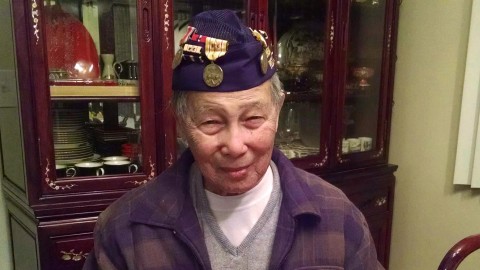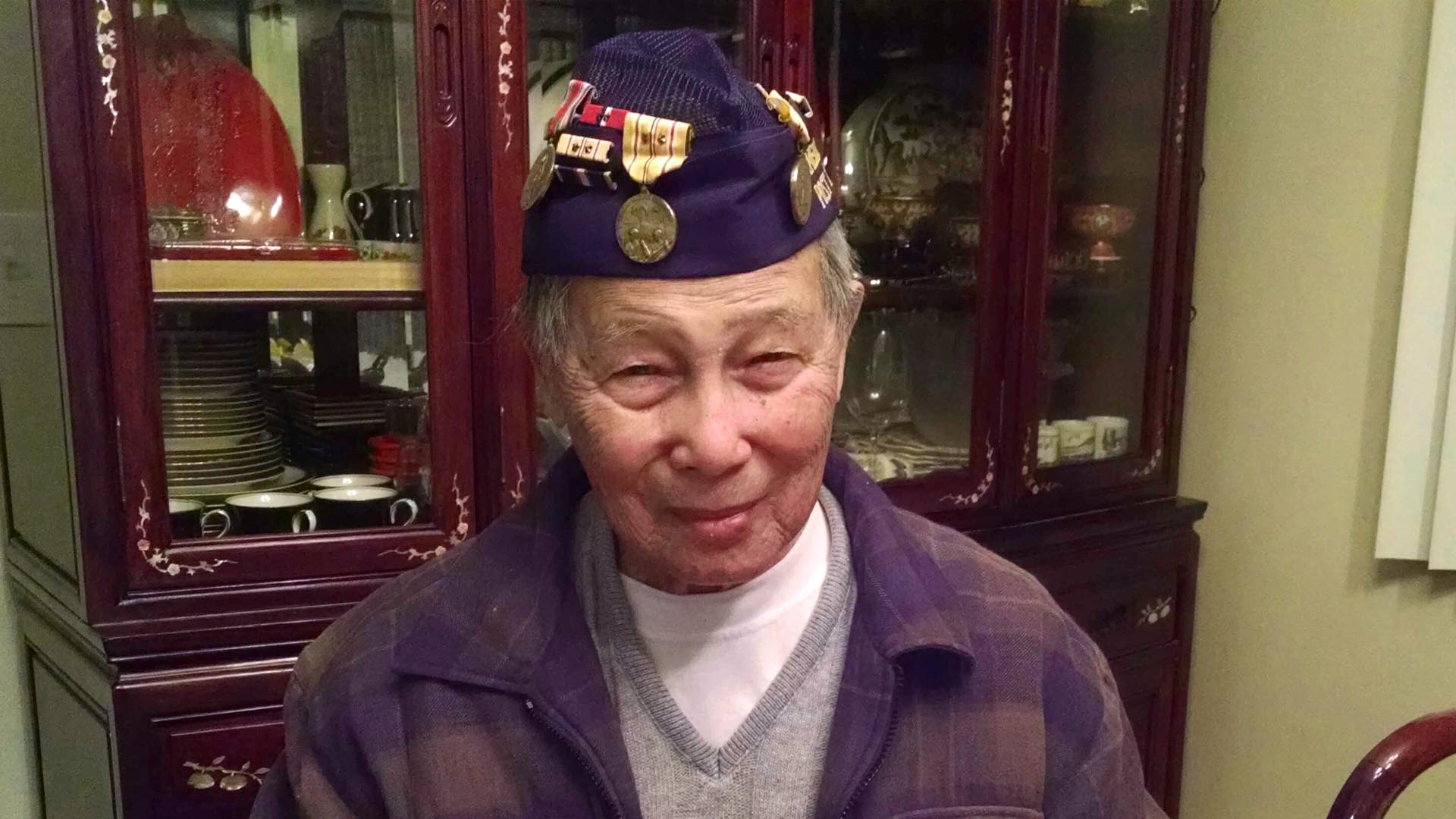
IamA 94 year old WWII veteran and Bataan Death March survivor, AMA!
My short bio: My granddaughters wanted to ask me some questions about my upbringing and life experiences. We thought we would open up the interview to the Reddit community! AMA!
My Proof: http://imgur.com/iu4zRuQ
http://imgur.com/1oLWvwn
http://imgur.com/j6JG15o
http://imgur.com/SaxVqEq
http://youtu.be/ReuotEPIMoc that’s me at the 40 second mark!
When did you come to the U.S.? How was life in the Philippines after the war?
I came to the U.S. in 1980. Life after the war was better. There was work, medicine and you could buy things you wanted.
What was the life lesson you took from WWII?
Be in good health, it is important to survival.
How does one maintain good health? What does your diet consist of?
Number one is rice, then vegetables, then fish, then meat.
What’s the best part about being alive in 2014?
The best thing about being alive right now is receiving compensation from the U.S. government. (Smiling)
What was the first thing you wanted to do after going home?
The first thing was to get my health back. Then, I wanted to have a simple life. Just eat. Rice and fish!
What was your closest call to being killed in action?
Yes I did. When the Japanese bombed us, I was under a mango tree. I looked and there was a big hole near me!
Do you feel that the Philippines was abandoned at the time; i.e. thrown to the Japanese?
We had no support or good weapons, just rifles and artillery. The United States was justified in not coming to help sooner, there were more strategic reasons.
I’m Filipino and from the Philippines. What’s your opinion about the current state of our country?
It’s so over populated now. It’s hard to progress. So many typhoons each year. The government is corrupt, and companies won’t let people work.
What was your ranking in the military?
I was a Staff Sergeant.
Do you know or keep in touch with anyone from back then?
I can’t remember anyone else from my unit, and I never saw them after I was released.
When you joined the force, what was the mentality? For your country or is.it a us vs. Them mentality?
For the country.
Do you still hate the Japanese?
Of course at the time. Now I am neutral.
What was the kindest thing you saw in the camp/on the march?
Along the way, people sometimes threw food wrapped in banana leaves at us.
Did you interact with the Filipino prisoners at all?
I was a Filipino prisoner. I was with K Company, 3rd Battalion, 31st Infantry.
What did you eat on the march?
On the march the Japanese government did not give us food. We ate what we could pick up. At night they allowed us to sleep in a field. When we woke up we found a plantation of Jicama. That’s what we ate, but that was just our group.
Did you ever meet any of your guards later in life? Were you able to forgive them?
I never met them or saw them again, but I forgive them.
What is your best advice to someone who is currently serving in the military?
Just be a simple soldier. Don’t lazy, sleepy or aggressive. Follow the orders of the day.
What was your initial reaction once you heard World War II had ended? Did that reaction change when you heard about the atomic bombs?
I was happy at the time that the war had ended. I felt that Hiroshima and Nagasaki were justified. It saved many lives, and it ended the war.
How were you captured?
We surrendered in Bataan.
Was the treatment you got at the camp horrendous?
We were not mistreated at the camp. I was unable to see or hear others being mistreated.
Are you still able to eat rice after having such a bitter memory attached to it?
I eat rice every day.
What was the worst thing that you had to endure? If you’re not willing to talk about it; how about the best experience?
The worst thing was the death march itself and the food in the camp. Just rice and salt. We used to try and get the leaves of edible plants and cook it. Some people were so hungry they would sweep up grass hoppers and eat it!
The best part of it is “now”. There was nothing good about the war.
Were there any good moments during WWII? If so what was it?
The good moments for me were when there was no fighting.
What pow camp were you in? Were you kept on Luzon or were you sent somewhere else? How were you liberated and what was that like?
I was in Luzon, Capas Tarlac for three months.
There was a ruling there that those were sick could go home. I had malaria, dysentery and other illnesses. My health was failing. When they saw how sick I was, they released me.
While in the POW camp did you see signs the war was coming to an end? or Was it a surprise?
I was already out of the camp when the war had ended.
Having been on the death march, interacting with both your captors and fellow prisoners of war and facing your own mortality at that time, what is the greatest lesson you learned, the greatest truth about life and living as a result of your experience?
If you’re able to resist the hardships of life as a prisoner of war, while it’s hot and you are without food, it’s a lesson that it is hard to survive without your health.
What activities have you practiced in your life since your time during the war that have proven essential to maintaining your health and wellbeing?
Have plenty of rest, sleep well, and eat everything that is given to you. If you see plants or things that are edible, eat them!
Did your feet hurt after the march?
He smiled.
Of course.
Did you ever interact with Douglas MacArthur? What was the view of him by the Filipinos? Did you ever interact with Douglas MacArthur?
I do not feel like MacArthur abandoned the Philippines. He was sent there for strategic reasons.
What do you think about current political/military state of affairs?
I feel like there are a lot of things not being done by the government. Helping Chaing Kai-Shek. They should have helped him drive out the communists.
What is your opinion of Oplan Bayanihan and is it an appropriate program?
It never happened. It was never stated when I was there. It only happened in the time of Marcos.
How do you feel about the U.S conflicts since WWII?
I have only been in Philippine campaigns. I only know that what I fought for was justified.
Some historians believe that the atomic bomb was unnecessary as Japan would inevitably surrender a couple months following. What do you think?
They are wrong. Even after two atomic bombs, the military did not want to surrender. The emperor made that decision. Everyone in Japan would have fought until their last breath.


